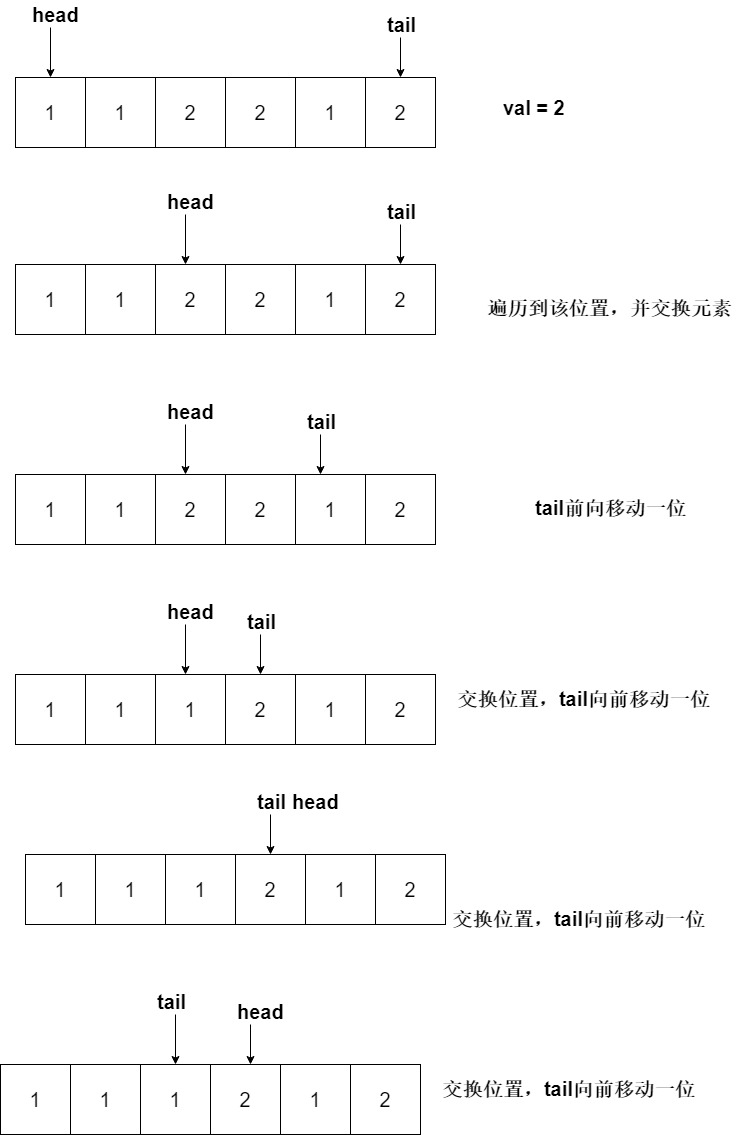Given an array nums and a value val, remove all instances of that value in-place and return the new length.Do not allocate extra space for another array, you must do this by modifying the input array in-place with O(1) extra memory. The order of elements can be changed. It doesn't matter what you leave beyond the new length.
Example 1: Given nums = [3,2,2,3], val = 3
Your function should return length = 2, with the first two elements of nums being 2.It doesn't matter what you leave beyond the returned length.
Example 2: Given nums = [0,1,2,2,3,0,4,2], val = 2,
Your function should return length = 5, with the first five elements of nums containing 0, 1, 3, 0, and 4.Note that the order of those five elements can be arbitrary. It doesn't matter what values are set beyond the returned length.
思路
因为我经常使用python解题,当我看到这道题之后使用python中列表自带的pop()方法来解决的,就是从头遍历到尾,如果相等的元素我们就直接弹出。遍历到尾部结束。时间复杂度为O(n),空间复杂度为O(1)。
如果我们不使用pop()方法,有没有其他方法可以解决?我想到了两个指针的方法分别指向头和尾,如果遇到和val相等的元素将尾指针指向的元素赋值到头指针的位置。直到头和尾指针相遇结束。时间复杂度为O(n), 空间复杂度为O(1).
第二种思路图示

第一种思路解决代码 1 class Solution(object):
2 def removeElement(self, nums, val):
3 """
4 :type nums: List[int]
5 :type val: int
6 :rtype: int
7 """
8 if len(nums) < 1: # 没有元素直接弹出
9 return 0
10 i,leng = 0, len(nums)
11
12 while i < len(nums):
13 if nums[i] == val: # 相等就弹出,
14 nums.pop(i)
15 leng -= 1
16 else:
17 i +=1
18 return len(nums)
第二种思路解决代码
1 class Solution(object):
2 def removeElement(self, nums, val):
3 """
4 :type nums: List[int]
5 :type val: int
6 :rtype: int
7 """
8 if len(nums) < 1:
9 return 0
10 i,leng = 0, len(nums)-1
11 while i <= leng:
12 if nums[i] == val:
13 nums[i] = nums[leng] # 将尾部的元素进行赋值。
14 leng -= 1
15 else:
16 i+= 1
17 return leng+1